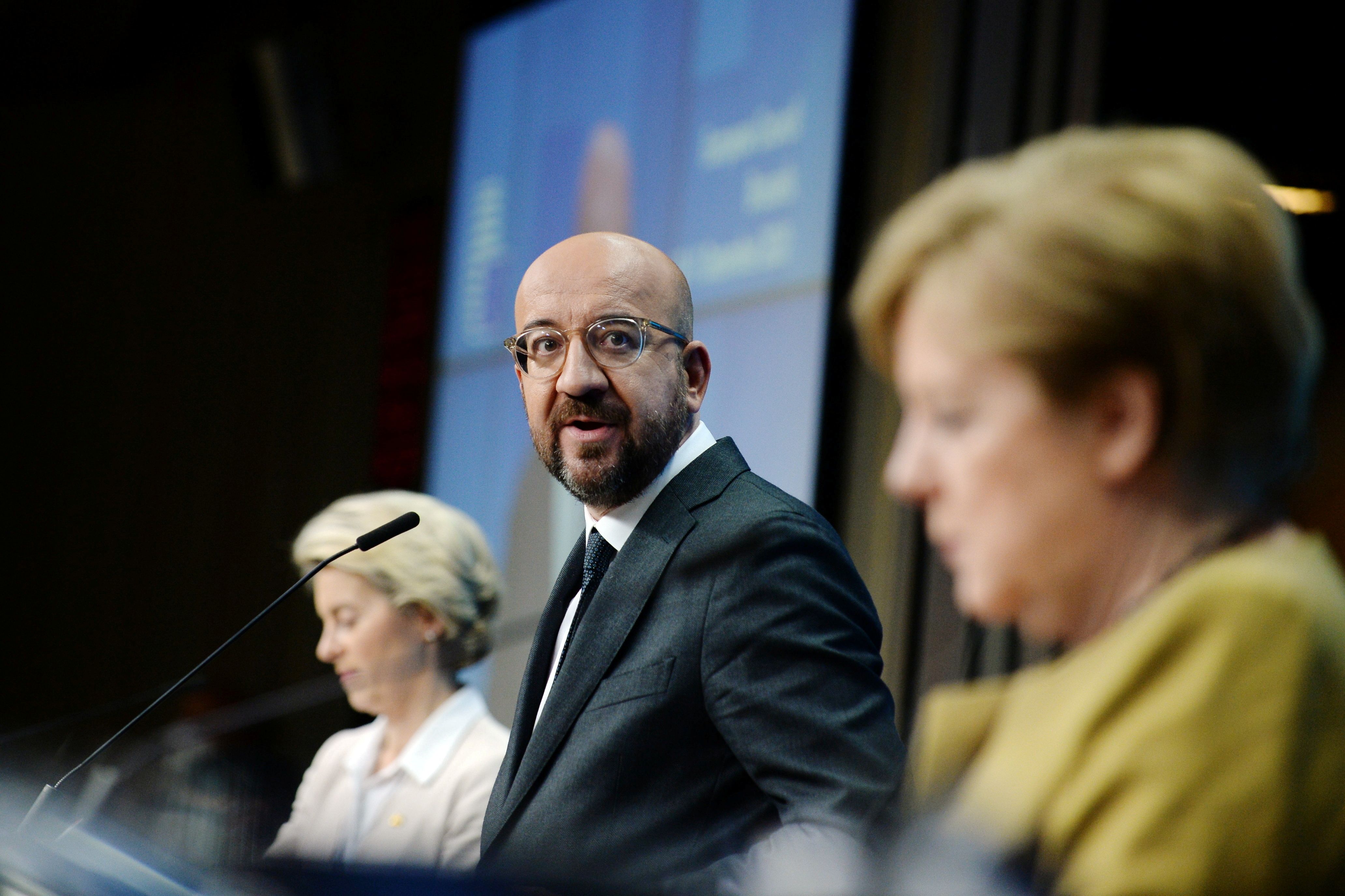European Council Breaks Stalemate over EU Multiannual Budget

What is the crux of the compromise on the conditionality mechanism?
The regulation establishing the mechanism, negotiated by the European Parliament (EP) and the German presidency, was not modified. The European Council responded to the concerns expressed by Hungary and Poland by formulating guidelines regarding the application of the legal act. The most significant of them states that the European Commission will refrain from using the new instruments (i.e., will not call for suspending the disbursement of EU funds in relation with breaches of rule-of-law principles that endanger the financial interests of the Union) until the Court of Justice of the EU (CJEU) has issued an opinion on the conformity of the regulation with EU law. Hungary and Poland announced that they would request an opinion. As a result, the entry into force of the regulation will be de facto delayed even by more than a year (the average duration of proceedings before the CJEU is 16 months).
Can adoption of the Multiannual Financial Framework and the recovery fund be considered confirmed?
The deal struck by the European Council means that the MFF will have the requisite unanimous approval of the Member States. The consent of the EP is also required. So far, the chamber has made its backing dependent on the adoption of the conditionality mechanism. The main EP negotiator regarding mechanism endorsed the European Council compromise, so the chamber will probably validate the MFF in the coming days. The legal act that enables the creation of the recovery fund will need to be ratified by the parliaments of the Member States. It is highly likely that the legislatures will back the decisions taken by the heads of state and government.
What are the summit’s conclusions regarding climate?
The European Council endorsed the Commission’s proposal to increase the planned emissions reduction target for 2030 from 40% to at least 55% (compared to 1990 levels). It thus confirms that, despite the recession due to the pandemic, the EU wants to continue its ambitious climate policy. Thirty percent of both the MFF and the recovery fund are to be invested in projects that contribute to reducing emissions. Obligations for individual Member States will be adapted to the specificity of their capabilities and limitations regarding energy generation. In addition, the intention to create a carbon border adjustment mechanism was confirmed. This instrument is supposed to hinder the offshoring of production activities to countries with lax environmental standards and at the same time provide revenue for the recovery fund.
What are the decisions regarding Turkey and the Eastern Mediterranean?
The EUCO called for a de-escalation of Turkish-Greek tensions, condemned Turkey’s latest actions in Cyprus (the re-opening of Varosha), expressed its will to continue supporting Syrian refugees and renewed its offer to strengthen cooperation with Turkey if it abandons its confrontational policy towards the EU and its members. Additional minor sanctions will be imposed on Turkey (on individuals and companies involved in exploration of natural resources in Republic of Cyprus territory), and the High Representative for Foreign Policy Josep Borrell is to submit a report to the Council on the future of Turkish-European relations by March 2021, containing also a proposal of extended sanctions. Work on the organisation of a multilateral conference on the situation in the Eastern Mediterranean is also to be accelerated. The EUCO indicated the will to coordinate EU policy on Turkey and the region with the United States.
What do the summit decisions mean for Poland?
Poland succeeded in ensuring that the Commission will apply the conditionality mechanism only after the CJEU confirms its legality. However, its threat of a veto and the ensuing tension in relations with several Member States may affect Poland’s capability to promote its ideas on the EU level. On climate policy, since the leaders agreed to consider gas technologies as compatible with the green transition, Poland will be able to use EU money for infrastructure projects in this sector. The conclusions concerning Turkey mean that countries calling for the strengthening of sanctions (Greece, Cyprus, France) will continue to seek wider support for their policies. They may condition their support in other areas, for example, in actions regarding Belarus, on the recognition of their position on Turkey.



